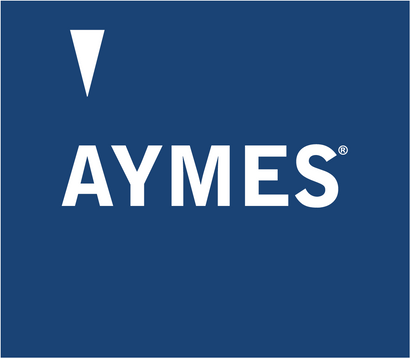
About Sue Acreman, RD
Sue qualified as a Dietitian in 1974 and has enjoyed over 46 years in the profession. She is a Fellow of the British Dietetic Association (BDA) and a member of the newly formed honours committee.
Sue has worked in cancer care for many years and remains proud to be an oncology dietitian to this day. She has an MSc in inter-professional health studies, has been involved in clinical research and truly believes in life-long learning.
Every dietetic encounter yields new information. Sue returned to an NHS cancer care role for four months during the COVID 19 pandemic. Sue also works as a volunteer with Cruse, offering bereavement support to people in grief. Italy is her favourite holiday destination and she was learning Italian before COVID got in the way. However, she is now able order a glass of vino rosso and can say Cin Cin with the best of them.
A “Golden” Career
Qualifying in 1974, it was whilst working in her first job that she encountered a patient with cancer, and from that moment on cancer and nutrition support became her focus.“I am glad that I gained experience in general dietetics” Sue told me, “but there was always the abiding interest in cancer care. My first role in this area was in the community caring for people with terminal illness. This led to my securing a role in a regional cancer centre as the first ever cancer specialist dietitian in Wales. I stayed at the cancer centre for twenty six years, becoming involved in research and progressing to therapies manager before becoming the only consultant allied health professional in cancer rehabilitation in Wales.”
Moving into Research
I asked Sue about her involvement in research. “All the research and investigative work I have done in my career has been with the aim of improving patient care. My last publication was a case study of the very first head and neck cancer patient in the UK to be treated with pioneering proton beam therapy”. Sue’s case study, which was published in the Complete Nutrition Magazine in 2019 (1), discusses how this therapy differs from conventional radiotherapy.
“The difference between conventional radiotherapy and proton beam therapy is that there is less local damage to surrounding tissue. It’s been suggested that people undergoing this type of therapy suffer from fewer toxicities, reduced weight loss and fewer swallow impairments as a result of treatment” Sue went onto explain that “in our case study, the patient experienced some weight loss during their therapy, which we were able to manage with ONS and dietary measures thereby avoiding enteral feeding. We also found that, although side effects appeared more rapidly, they were shorter lived than when using conventional radiotherapy”.
Accessible Research
Including patient case studies as part of the dietetic evidence base is something that Sue feels should not be discounted. “I think it is really important that healthcare professionals (HCPs) share such things with one another, that’s how we can all learn and benefit from one another’s experience. Research and accruing evidence of practice doesn’t always have to be Randomised Controlled Trials (RCTs), though they are the backbone of high quality evidence to inform practice. I feel that smaller investigations, seeking answers to questions, can raise important issues which can inform future research ideas”.
A case study is a research approach that is used to generate an in-depth, multi-faceted understanding of a complex issue in its real-life context. These can be exploratory (creating new knowledge), constructive (solving some problem), or confirmatory (testing a hypothesis with empirical evidence). Additionally, the case study can also use either a primary or secondary approach. Case studies are a useful way for practitioners to start on their research journey. “No idea is too small or insignificant” Sue told me, “And if it can improve patient care then go for it”.
When it comes to translational research (applying research to practice), Sue feels just as strongly. Another key investigation Sue completed was a qualitative study looking at reasons why patients with brain tumours do not access rehabilitation services frequently or easily (2). The research team addressed the reasons for this through semi-structured interviews of healthcare professionals, investigating their experiences of rehabilitation for this patient group and describing commonly identified barriers under key themes. These interviews gauged the views of eight healthcare professionals representing three professions in different settings. Three strongly emerging themes (professional knowledge and behaviours; services and systems; and the disease and its effects) made it possible for practical and realistic solutions to be presented and applied in an effort to enhance the patient experience.
The Ethics of Feeding in Palliative Care
Sue also has a strong interest in improving palliative and end of life care experiences. In a 2016 review paper (3), Sue discussed the ethics around the provision of food and fluids for a person nearing the end of their life. “Tube feeding is regarded as a medical treatment but this is not a clear-cut issue, and it is important that nutritional needs are discussed and included within a health-care plan. While it is accepted that nutrition cannot prolong life, it should be recognized that optimal nutrition has a role in end of life care”. Sue discussed the many roles of nutritional care for the end of life patient. “Nutritional care at the end of life has a number of roles; optimising physical strength to fulfil last or final objectives, to die with dignity, not of starvation and to retain some control over the disease process. Food and feeding can be a useful focus for the patient”. Speaking about the cancer journey, Sue says; “it is important to consider the trajectory that the patient will have endured through diagnosis, treatment and medication. An interest in feeding oneself can provide a useful focus, it often provides the patient with a sense of control”.
Evolution of Nutrition and Cancer Care
I was interested to hear if Sue had seen an impact of research on nutritional management of cancer care, over her nearly 50 years in the profession. “ Nutritional care in cancer was something that was an “add on” in the early years of my career, and I was in the right place at the right time when the role of the first Dietitian in Wales specialising in cancer care was developed. Nutrition is now an integral and essential part of many types of cancer. There is also an increasing awareness that being well nourished can improve outcomes, tolerance of treatment, and quality of life” she told me.
“People have to be physically fit enough to get the best out of the life they have left to live, especially as these days the majority of people are living with and beyond their cancer diagnosis. The clinical nutrition interventions remain surprisingly similar but the variety of nutrition support options is impressively large now, this enables better patient choice”. When applying the importance of nutrition in cancer care, Sue thinks we have come a long way. “Dietitians, for example, now have a much higher profile and respect these days, we all stand on the shoulders of the dietitians before us. I am very proud of the fact that many of the systems and processes I put in place have formed the foundation of local dietetic practice in cancer care today".
To the Future
When thinking about the future, Sue has great hopes for nutritional care for patients. “I would like to think that dietetics remains at the heart of all things nutrition, especially in clinical care. Dietitians should have a role in research and in training other health care professionals to work as a team for nutritional care. Whatever the future, I hope dietitians never lose their precision in assessing clinical nutritional requirements and their unique skills in advising patients on the best way to keep well”. When we can stand on the shoulders of dietitians like Sue, the future of nutritional care looks strong.
References
- Acreman. S. Nutrition Support in Proton Therapy for Head and Neck Cancer. Complete Nutrition Magazine. Vol 19 (5). November 2019. pp. 45-47.
-
Acreman. S et al. Exploring access to rehabilitation services from allied health professionals for patients with primary high-grade brain tumours. Palliative Medicine. 2011. Available at:https://journals.sagepub.com/doi/abs/10.1177/0269216311398699
-
Acreman. S. Nutrition in palliative care. Br J Community Nursing. 2009 Vol 14(10): 427-428. Available at:https://pubmed.ncbi.nlm.nih.gov/19966682/



